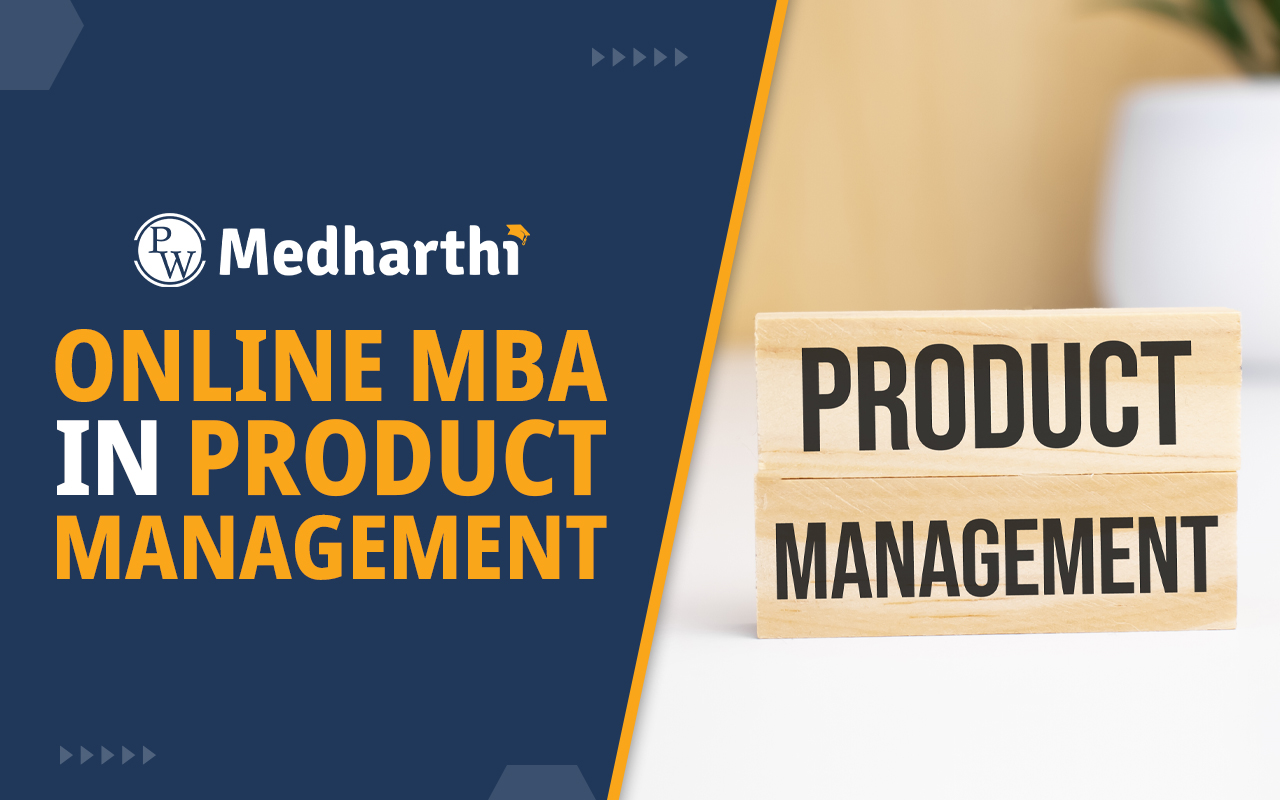
Supply Chain Management courses after 12 offer students a comprehensive understanding of the intricate processes involved in the movement of goods and services from suppliers to consumers. After completing the 12 grade, aspiring professionals can pursue these courses, which typically require a foundational knowledge of business concepts. The key skills for success in Supply chain management courses after 12 include analytical thinking, problem-solving, and effective communication. These courses prepare students for dynamic careers in various industries, enhancing their employability and expertise.
What is a Supply Chain Management Course?
A Supply Chain Management courses after 12 is an educational program designed to equip students with the knowledge and skills necessary to effectively manage and optimise supply chain operations. This course covers a wide range of topics, including logistics, procurement, inventory management, demand forecasting, and the role of technology in supply chains. Students pursuing Supply chain management courses after 12 can learn about the interconnectedness of various functions within a supply chain. They can also know the importance of strategic planning, and how to enhance efficiency while minimising costs.Supply Chain Management Courses After 12 Eligibility Criteria
Candidates can go through the table below to know about the eligibility criteria for Supply chain management courses after 12.| Course Level | Supply chain management courses after 12 Eligibility Criteria |
| Certificate | 10+2 (any stream) or a Bachelor's degree in a relevant field from a recognised board/university. |
| Diploma | 10+2 (any stream) from a recognised board with a minimum of 45-50% marks. |
| Undergraduate (UG) | 10+2 (any stream) from a recognised board with a minimum of 50% marks. |
| Postgraduate (PG) | A Bachelor's degree in a relevant field (e.g., Engineering, Management, Commerce, Economics) from a recognised university with a minimum of 45-50% marks. |
| Doctorate (PhD) | A Master's degree in Supply Chain Management or a related field from a recognised university with a minimum of 55% marks. |
Supply Chain Management Courses After 12 Syllabus
The syllabus for a Supply Chain Management course typically covers a comprehensive range of topics designed to equip students with the necessary knowledge and skills to excel in the field. The curriculum integrates theoretical frameworks with practical applications, focusing on key areas such as logistics, procurement, inventory management, and demand forecasting.| Supply chain management courses after 12 Syllabus | |
| Module | Topics |
| Introduction to Supply Chain Management | Definition, scope, importance, key players, challenges, and opportunities in SCM |
| Supply Chain Design and Strategy | Supply chain network design, facility location, inventory management, transportation and logistics, supply chain integration, and supply chain sustainability |
| Demand Planning and Forecasting | Demand forecasting techniques, demand planning processes, sales and operations planning (S&OP), and demand management strategies |
| Procurement and Sourcing | Supplier selection, negotiation, contract management, procurement strategies, and supplier relationship management |
| Inventory Management | Inventory control techniques, inventory optimisation, ABC analysis, economic order quantity (EOQ), and safety stock management |
| Logistics and Transportation | Transportation modes, transportation planning, warehouse management, distribution network design, and reverse logistics |
| Supply Chain Performance Measurement | Key performance indicators (KPIs), supply chain metrics, and performance measurement frameworks |
| Supply Chain Risk Management | Risk identification, risk assessment, risk mitigation strategies, and supply chain resilience |
| Supply Chain Information Systems | Supply chain software, ERP systems, data analytics, and digital supply chain technologies |
| Global Supply Chain Management | International logistics, customs and regulations, global sourcing, and cultural considerations in supply chain management |
Scope of Supply Chain Management Course After 12
The scope of a supply chain management courses after 12 grade is vast, offering numerous career opportunities across various industries. As globalisation and technology continue to shape the business landscape, skilled professionals are in high demand to optimise supply chains, enhance efficiency, and drive organisational success.- Graduates can pursue roles such as supply chain analyst, logistics manager, procurement specialist, and operations manager. These positions are available in various sectors, including manufacturing, retail, healthcare, and e-commerce. This diversity allows individuals to choose a path that aligns with their interests and skills, fostering career growth.
- Supply chain management is a global discipline, providing opportunities to work with international companies and suppliers. Professionals can engage in cross-border trade, manage global logistics, and navigate international regulations. This exposure enhances cultural understanding and opens doors to careers that may involve travel and collaboration with diverse teams.
- The rise of technology in supply chain management course after 12, such as automation, data analytics, and artificial intelligence, creates a demand for tech-savvy professionals. Courses often include training in relevant software and tools, equipping graduates with the skills needed to leverage technology for improved efficiency and decision-making in supply chains.
- As businesses increasingly prioritise sustainability, supply chain professionals play a crucial role in implementing eco-friendly practices. This includes optimising resource use, reducing waste, and ensuring ethical sourcing. Graduates can contribute to corporate social responsibility initiatives, making a positive impact on the environment while advancing their careers.
- The field of supply chain management is constantly evolving, necessitating ongoing education and skill enhancement. Professionals can pursue certifications, attend workshops, and engage in industry conferences to stay updated on best practices and emerging trends.
Skills Required for Supply Chain Management Courses After 12
A career in supply chain management offers diverse opportunities and requires a blend of technical and soft skills. Students pursuing this field after 12 grade should focus on developing competencies that enhance their problem-solving abilities, analytical thinking, and communication skills, which are essential for effective supply chain operations.- Professionals in supply chain management must excel in analysing data to identify trends, forecast demand, and make informed decisions. This includes proficiency in statistical analysis and the ability to interpret complex datasets to optimise inventory levels and improve operational efficiency.
- Effective communication is crucial in supply chain management, as it involves coordinating with various stakeholders, including suppliers, manufacturers, and customers. Strong verbal and written communication skills facilitate clear information exchange, ensuring that everyone is aligned and informed about processes, timelines, and expectations.
- Supply chain managers often negotiate contracts and terms with suppliers and vendors. Strong negotiation skills enable professionals to secure favourable terms, manage costs, and build lasting relationships with partners. The Supply chain management courses after 12 offers balance of assertiveness and collaboration to achieve win-win outcomes.
- The ability to identify problems and develop effective solutions is essential in this field. Supply chain managers must think critically and creatively to address challenges such as supply disruptions, inventory shortages, or logistical inefficiencies. This involves assessing situations, brainstorming alternatives, and implementing actionable plans.
- Understanding the intricacies of logistics is vital for optimising supply chain operations. This includes knowledge of transportation, warehousing, and distribution processes. Professionals need to coordinate various elements of the supply chain to ensure timely delivery of products while minimising costs and maximising efficiency.
- Familiarity with supply chain management software and tools is increasingly important. Professionals should be adept at using technology for inventory management, demand forecasting, and data analysis. Knowledge of ERP (Enterprise Resource Planning) systems and other relevant software enhances decision-making and operational efficiency.
- The ability to identify and mitigate risks within the supply chain is critical. Supply chain professionals must assess potential disruptions, such as natural disasters, geopolitical issues, or supplier failures, and develop contingency plans to minimise their impact.
|
Read Also |
|
| Digital Supply Chain Management | Digital Supply Chain Management Internship |
Supply chain management courses after 12 FAQs
Which skill is best for supply chain management?
Analytical skills are crucial for supply chain management, enabling professionals to assess data, identify trends, and make informed decisions.
What is the eligibility for supply chain management?
Eligibility for supply chain management programs typically requires a high school diploma or equivalent. Many undergraduate courses may prefer candidates with a background in business or related fields, while advanced degrees may require prior qualifications.
What are the requirements for supply chain management?
Requirements for supply chain management courses often include foundational knowledge in business principles, mathematics, and statistics.
Is supply chain a hard skill?
Yes, supply chain management involves hard skills such as data analysis, inventory management, and logistics planning. Proficiency in software tools, such as ERP systems, is also essential for effective supply chain operations.
What is SAP in supply chain?
SAP (Systems, Applications, and Products) is a leading enterprise resource planning (ERP) software that integrates various business processes, including supply chain management.
Talk to a counsellorHave doubts? Our support team will be happy to assist you!

Check out these Related Articles
Free Learning Resources
PW Books
Notes (Class 10-12)
PW Study Materials
Notes (Class 6-9)
Ncert Solutions
Govt Exams
Class 6th to 12th Online Courses
Govt Job Exams Courses
UPSC Coaching
Defence Exam Coaching
Gate Exam Coaching
Other Exams
Know about Physics Wallah
Physics Wallah is an Indian edtech platform that provides accessible & comprehensive learning experiences to students from Class 6th to postgraduate level. We also provide extensive NCERT solutions, sample paper, NEET, JEE Mains, BITSAT previous year papers & more such resources to students. Physics Wallah also caters to over 3.5 million registered students and over 78 lakh+ Youtube subscribers with 4.8 rating on its app.
We Stand Out because
We provide students with intensive courses with India’s qualified & experienced faculties & mentors. PW strives to make the learning experience comprehensive and accessible for students of all sections of society. We believe in empowering every single student who couldn't dream of a good career in engineering and medical field earlier.
Our Key Focus Areas
Physics Wallah's main focus is to make the learning experience as economical as possible for all students. With our affordable courses like Lakshya, Udaan and Arjuna and many others, we have been able to provide a platform for lakhs of aspirants. From providing Chemistry, Maths, Physics formula to giving e-books of eminent authors like RD Sharma, RS Aggarwal and Lakhmir Singh, PW focuses on every single student's need for preparation.
What Makes Us Different
Physics Wallah strives to develop a comprehensive pedagogical structure for students, where they get a state-of-the-art learning experience with study material and resources. Apart from catering students preparing for JEE Mains and NEET, PW also provides study material for each state board like Uttar Pradesh, Bihar, and others
Copyright © 2026 Physicswallah Limited All rights reserved.









